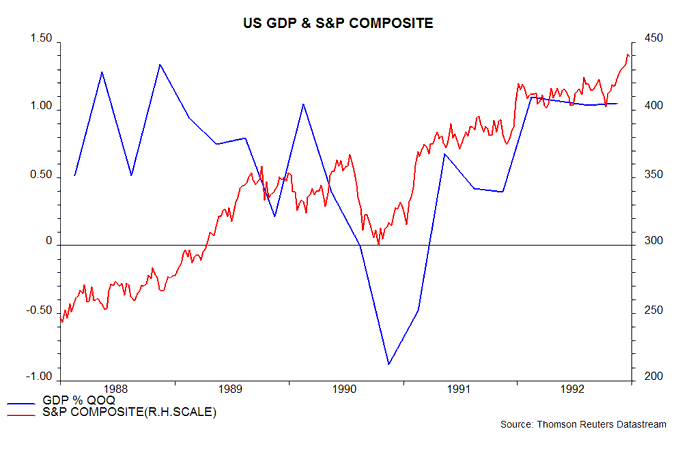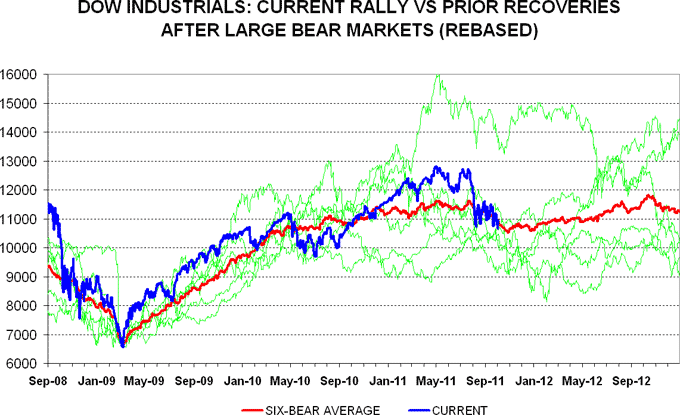Would a US recession crush stocks?
“Based on evidence that has always and only been observed during or immediately prior to US recessions, the US economy appears headed into a second leg of an unusually challenging downturn.” So wrote economist and fund manager John Hussman in his weekly market comment of 28 June 2010 (link to left). The US economy, of course, continued to expand during the second half of last year, with GDP rising at a 2.4% annualised pace.
Mr Hussman issued another recession call this summer. So has Nouriel Roubini, who forecast a “double dip” in 2009 as well as 2010 (and was “predicting” the 2008-09 recession as early as 2006). They have been joined recently by the highly-respected Economic Cycle Research Institute, which has never issued a false recession forecast.
So is a US contraction now a done deal? While making no claims of recession-spotting omniscience, the author of these notes judges that the economy was at “stall speed” in September, reflected in a near-50 reading of the ISM manufacturing new orders index, moderately significant corporate earnings downgrades and soft labour market indicators. A further negative shock could tip it over into recession. Perhaps the financial turmoil in Europe is sufficient cause.
A recession now, however, would be very unusual from a monetary perspective. As discussed in a post questioning Mr Hussman’s 2010 recession call, 10 out of 11 post-war US downturns were preceded by a contraction of the real narrow money supply. The exception was the 1953-54 recession, apparently caused by severe fiscal tightening as defence spending was slashed after the Korean war.
Monetary growth, moreover, has been accelerating strongly recently, on both narrow and broad measures, with corporate liquidity particularly buoyant. The typical six-month lag suggests that the economy will regain momentum from early 2012, if not sooner. At a minimum, ample liquidity should limit any near-term decline in spending and activity.
Any downturn, therefore, should be mild and short-lived. This consideration is probably more significant than whether the recession-mongers are right or wrong. A modest two-quarter contraction in GDP could be met by relief by markets fearful of another “great recession”. A comparison can be drawn with 1990-91, when GDP fell by 1.4% over the winter quarters but the S&P 500 ended the recession 5% higher than when it started – see first chart.
Such a scenario, by the way, would be consistent with the continued rather remarkable adherence of US stocks to the “six-bear average”, which is about to hit a bottom and embark on a gradual but sustained uptrend – second chart.



Reader Comments